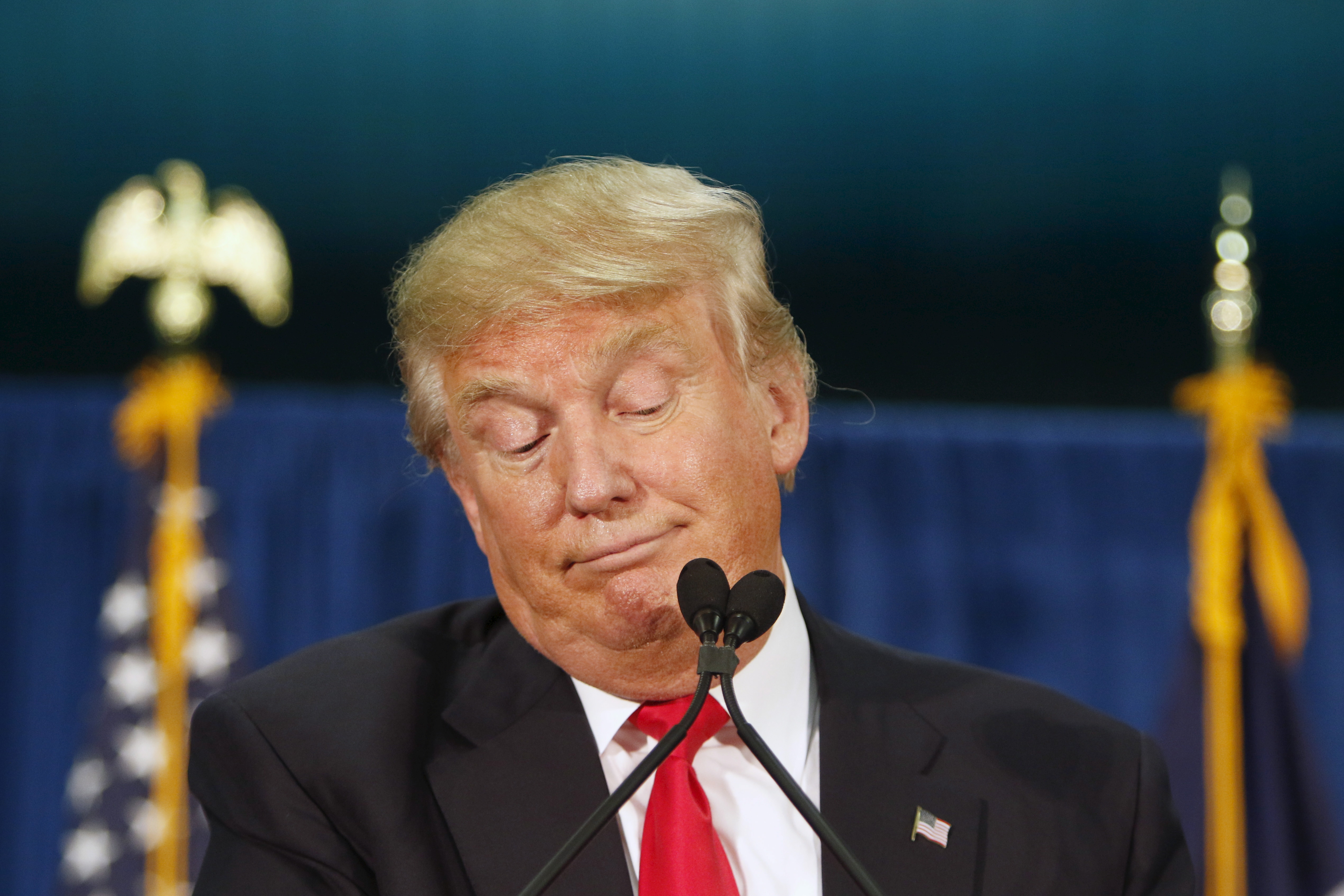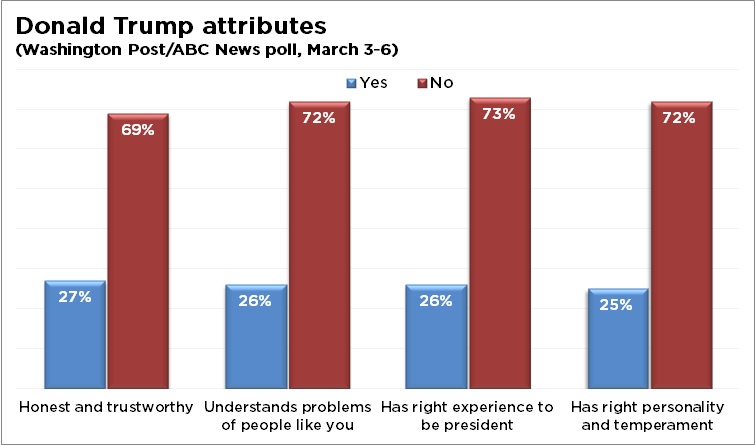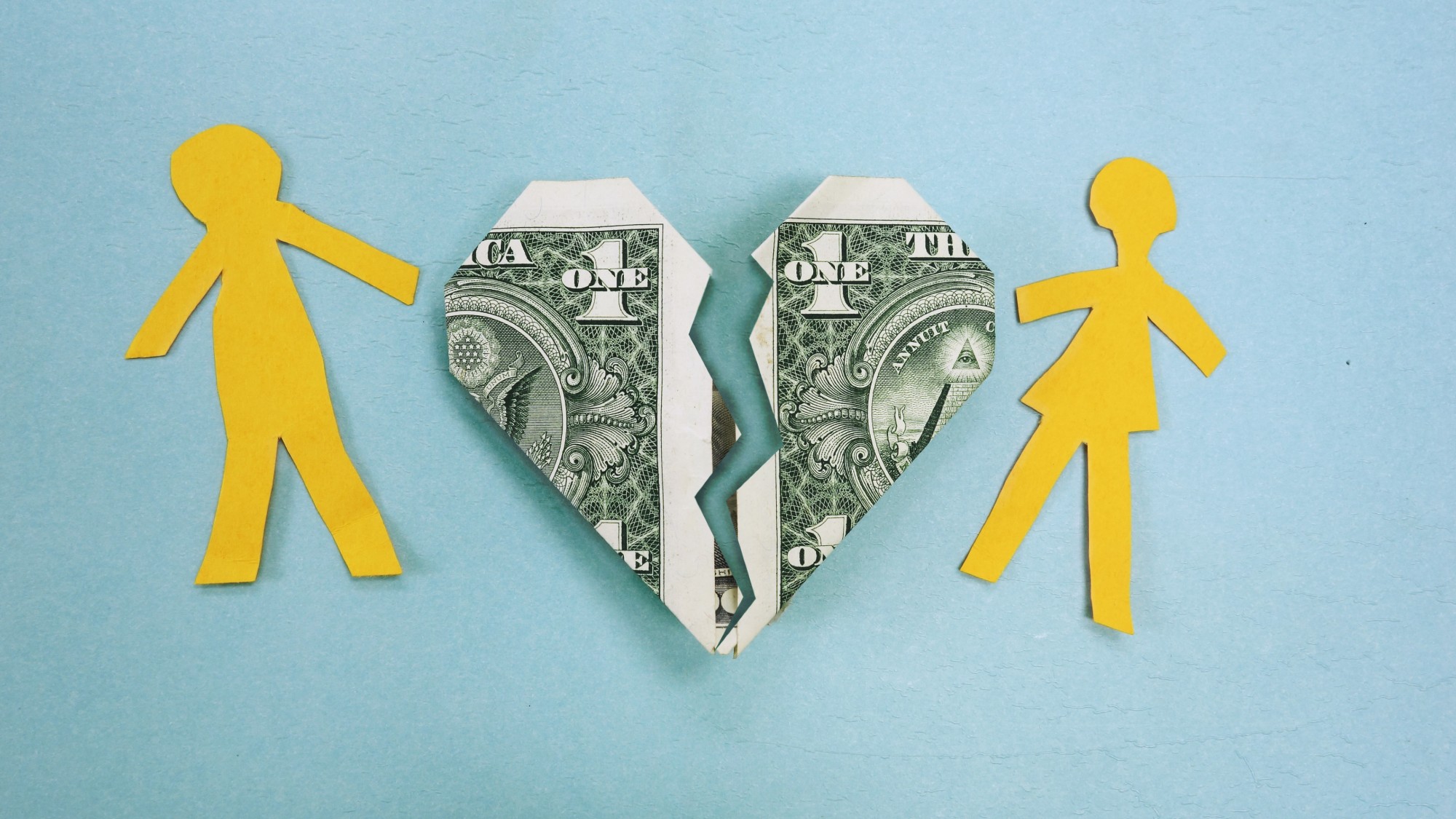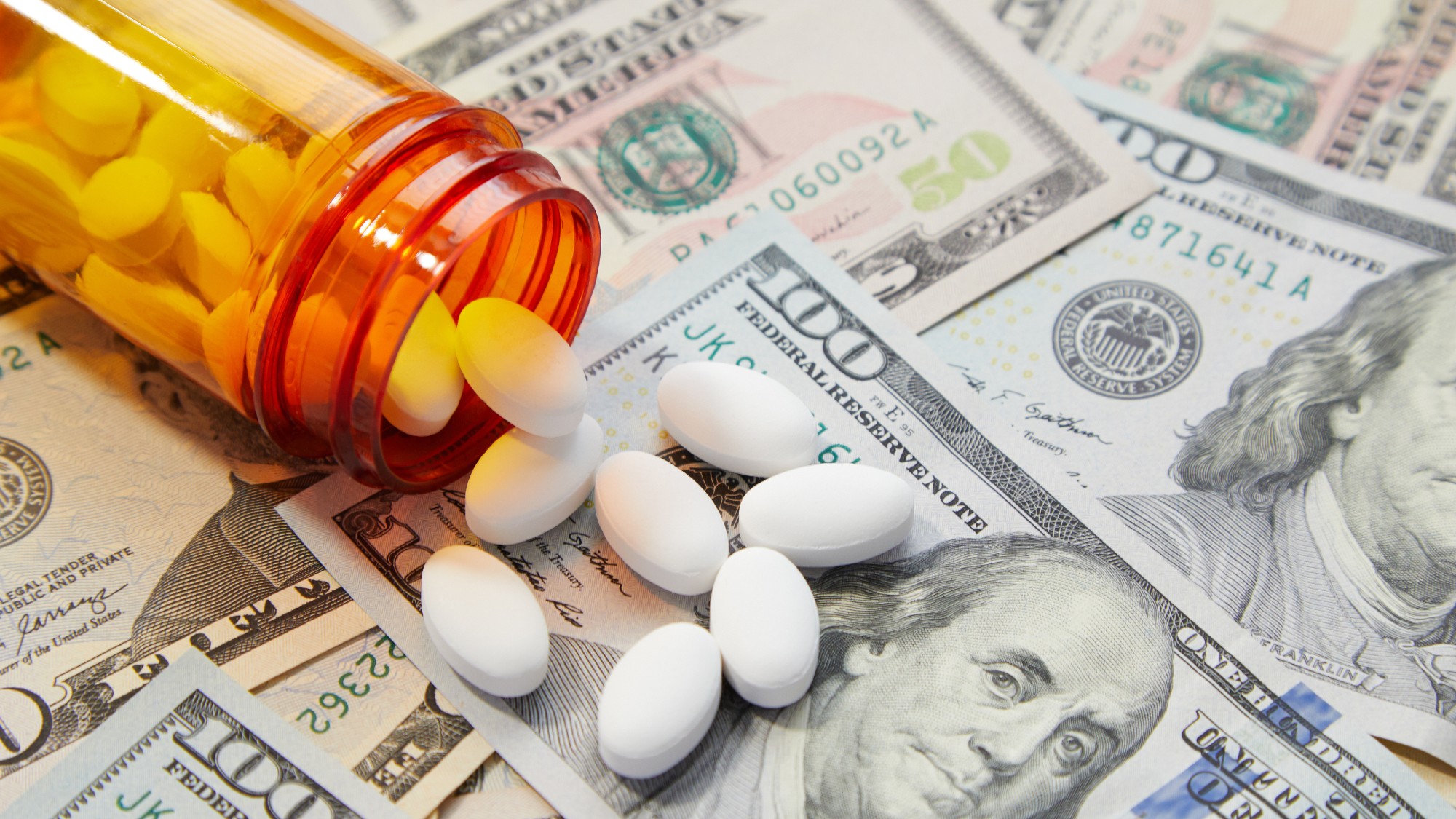Donald Trump would be the most widely reviled presidential nominee in recent history
More than two-thirds of the country dislikes him. Sad!


"I've been very successful," says Donald Trump. "Everybody loves me."
He certainly has been successful, particularly in the Republican presidential primaries. But everybody does not love Donald Trump.
Commentators have talked a lot about Trump's limitations as a general election candidate. But even so, this simple, broad point hasn't been fully appreciated: If he prevails and becomes the Republican nominee, Donald Trump may be the most disliked, even reviled major party nominee in recent history.
The Week
Escape your echo chamber. Get the facts behind the news, plus analysis from multiple perspectives.

Sign up for The Week's Free Newsletters
From our morning news briefing to a weekly Good News Newsletter, get the best of The Week delivered directly to your inbox.
From our morning news briefing to a weekly Good News Newsletter, get the best of The Week delivered directly to your inbox.
To get a sense of how widespread this dislike is, let's look at a Washington Post/ABC News poll released on Tuesday. It found, consistent with every other poll, that Trump still leads the race for the Republican nomination. But it also found that the voters — particularly all voters, but even those within the GOP — don't think highly of him. When matched in one-to-one trial heats against Marco Rubio and Ted Cruz, Trump lost, by 54-41 to Cruz (who has at least a theoretical chance of winning the nomination), and by 51-45 to Rubio (who has almost no chance). In other words, it appears that everyone was right when they said that Trump would be vulnerable as soon as the race came down to him against one other candidate. The trouble is that the race still has four candidates, and if it ever comes down to Trump and one other, it will probably be too late.
Only 51 percent of Republican voters said they'd be satisfied if Trump were their nominee. Compare that to the 74 percent of Democrats who would be satisfied with Hillary Clinton and the 72 percent who would be satisfied with Bernie Sanders.
But the really brutal numbers come among the electorate as a whole. Only 30 percent of the public says they have a favorable opinion of Trump, while 67 percent says they have an unfavorable opinion. (Even Hillary Clinton — hardly America's most popular politician — has a 46 percent favorable rating, versus 52 percent unfavorable.) Other polls have produced similar figures for Trump: approval somewhere in the 30s, disapproval somewhere in the 60s.
This is critical to understand when you see Trump fill a stadium with 20,000 people and then win a primary the next day. While he might have a plurality of support within the GOP, most of the public seems to find him utterly repellent. Now let's look at some of the attribute questions the poll asked:
A free daily email with the biggest news stories of the day – and the best features from TheWeek.com

We've all marveled at how no matter what Trump says or does, it doesn't seem to dent his support among GOP voters. But that doesn't mean all those controversies have had no impact. His loyalists are sticking with him, but the rest of the country doesn't like what they see.
Republicans hoping to stop Trump are now pinning their hopes on a brokered convention, in which Trump would arrive with less than a majority of delegates, and in multiple votes the assembled party members would select someone else. That well might happen, but think about what the response would be among Trump's supporters. He arrives at the convention having gotten more votes and more delegates than anyone else. After a campaign in which everyone talked about their disgust with the party establishment, Trump — the most anti-establishment candidate of all, whose very candidacy is a giant middle finger to the operators in Washington — gets pushed aside in favor of someone selected by party insiders. The result would be fury and chaos. Some people are literally predicting violence.
"A brokered convention would be the equivalent of the political 'Hunger Games.' And I am not exaggerating," said GOP strategist Anna Navarro. "Take a look at what's going on at Donald Trump events. Take a look at what happens to protesters. They get basically assaulted. If you think people aren't going to get clubbed like baby seals on the floor of the convention you haven't been watching what's been happening."
Things may not get that far — Trump may manage to get a majority of delegates, or you could have a brokered convention in which he still emerges as the nominee. But no matter what happens, there is no way this nomination fight ends with anything other than a whole lot of hurt feelings, resentment, and anger. The only question is who ends up angriest at whom.
And if Trump does triumph, you'll have a general election campaign in which Republicans are led by a spectacularly unpopular figure. To boot, there will be some Republicans campaigning against him, even if most fall into line. All those people he ridiculed and belittled will be highly motivated to come out and vote against him. He'll be getting criticized from all directions, and even if his most ardent supporters won't be dissuaded from voting for him, lots of other people will be.
And I'm pretty sure that through it all, Trump will continue to insist that everybody loves him.
Paul Waldman is a senior writer with The American Prospect magazine and a blogger for The Washington Post. His writing has appeared in dozens of newspapers, magazines, and web sites, and he is the author or co-author of four books on media and politics.
-
 How to financially prepare for divorce
How to financially prepare for divorceThe Explainer Facing ‘irreconcilable differences’ does not have to be financially devastating
-
 Why it’s important to shop around for a mortgage and what to look for
Why it’s important to shop around for a mortgage and what to look forThe Explainer You can save big by comparing different mortgage offers
-
 4 ways to save on rising health care costs
4 ways to save on rising health care costsThe Explainer Health care expenses are part of an overall increase in the cost of living for Americans
-
 Bari Weiss’ ‘60 Minutes’ scandal is about more than one report
Bari Weiss’ ‘60 Minutes’ scandal is about more than one reportIN THE SPOTLIGHT By blocking an approved segment on a controversial prison holding US deportees in El Salvador, the editor-in-chief of CBS News has become the main story
-
 Has Zohran Mamdani shown the Democrats how to win again?
Has Zohran Mamdani shown the Democrats how to win again?Today’s Big Question New York City mayoral election touted as victory for left-wing populists but moderate centrist wins elsewhere present more complex path for Democratic Party
-
 Millions turn out for anti-Trump ‘No Kings’ rallies
Millions turn out for anti-Trump ‘No Kings’ ralliesSpeed Read An estimated 7 million people participated, 2 million more than at the first ‘No Kings’ protest in June
-
 Ghislaine Maxwell: angling for a Trump pardon
Ghislaine Maxwell: angling for a Trump pardonTalking Point Convicted sex trafficker's testimony could shed new light on president's links to Jeffrey Epstein
-
 The last words and final moments of 40 presidents
The last words and final moments of 40 presidentsThe Explainer Some are eloquent quotes worthy of the holders of the highest office in the nation, and others... aren't
-
 The JFK files: the truth at last?
The JFK files: the truth at last?In The Spotlight More than 64,000 previously classified documents relating the 1963 assassination of John F. Kennedy have been released by the Trump administration
-
 'Seriously, not literally': how should the world take Donald Trump?
'Seriously, not literally': how should the world take Donald Trump?Today's big question White House rhetoric and reality look likely to become increasingly blurred
-
 Will Trump's 'madman' strategy pay off?
Will Trump's 'madman' strategy pay off?Today's Big Question Incoming US president likes to seem unpredictable but, this time round, world leaders could be wise to his playbook
